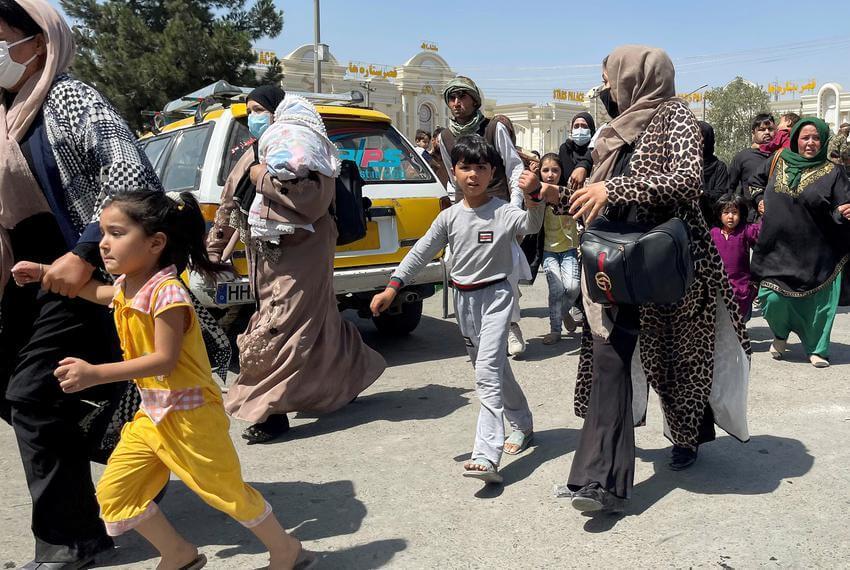JEREMIAH CHAPTER 37:It is a risky thing to fear the eyes of men when deciding for your own life
In this chapter, we have another message delivered to us today. A story is brought back how King Zedekiah had taken over after the real son of Jehoiakim had been dethroned by Babylon. Remember that Zedekiah was a direct son of King Josiah and thus an uncle to King Jehoiachin. But as the previous chapters continued telling us, neither Zedekiah nor his officials nor his people obeyed the Lord (verses 1-2). Some writers say that King Jehoiakim was wicked but his people were not and that King Zedekiah was not as wicked as his people but the text here makes it clear that the people, the King and all the officials were not any good. However, according to my observations, King Jehoiakim was far worse than King Zedekiah when it came to being disobedient (maybe the difference in their punishments portrays this too).
During the simple relief of Judah when the Babylonian army was going to face Egypt, King Zedekiah sent a message to prophet Jeremiah asking him to pray for the king and the country. This Jeremiah did and the Lord’s reply was as before, the King and people had disobeyed God and He was determined to punish them. Despite the sign of relief they had received when the Babylonian army retreated back from Jerusalem to meet the Egyptian Army that was coming Judah’s rescue, God made it clear that it wouldn’t last. The Babylonians were to return and finish up what God had prepared them to do. The lord made it clear by saying that even when few of the Babylonians remain and when wounded, they would still make God’s will come to pass (verses 3-10).
According Jeremiah chapter 34, it is during this simple relief when Babylonians returned back from Jerusalem that the people and their King disobeyed God and enslaved people they had earlier set free according to their God’s law (consider my notes on chapter 34).
Anyway, the Babylonians left and when all people were trying to go back to their shelters, Jeremiah went out on personal matters and was captured at the gate by Irijah (captain of the guards). Jeremiah tried to explain himself but in vain, these leaders were determined to bring him down. So he was put in a dungeon where he almost died if it wasn’t king’s order to meet him (verses 11-16). Some interpreters say that King Zedekiah was just like Governor Pilate of Jesus’ times. They both feared their officers and the public’s opinion on their decisions. They thus missed a lot of meaningful steps because of the sickness, “What will they say, think or do about this?” This partly explains why in the first verses the king had to send messengers to Jeremiah instead of meeting him in person. Also, the King must have got the guts to talk to the prophet following his imprisonment under the assumption that people and officers would think that he was looking into the prophet’s case.
According to John Gill, these leaders had personal grudges against Jeremiah still resulting from his prophecy and the false prophet Hananiah of chapter 28. Follow John Gill’s exposition, “whose name was Irijah, the son of Shelemiah, the son of Hananiah: the grandson as some think, of that Hananiah the false prophet, of whose death Jeremiah the prophet prophesied, Jer 28:16; and the Jews have a tradition that Hananiah ordered his son Shelemiah, that if he ever had an opportunity to bring Jeremiah to ruin, to do it; and the same charge Shelemiah gave to his son Irijah, who, having this opportunity, laid hold on him; Jarchi, Kimchi, and Abarbinel, make mention of it: and he took Jeremiah the prophet, saying, thou fallest away to the Chaldeans; it looks as if, though he might not have a family grudge against him, as the Jews suggest, yet had a hatred of him for his prophecies, and therefore fixes this calumny on him; for otherwise, why did he suffer the people to pass in great numbers without any such charge?
Jeremiah 37:14 Then said Jeremiah, it is false,…. Or a “falsehood” (k); as undoubtedly it was;
I fall not away to the Chaldeans; for the Chaldean army was gone from the city; nor did Jeremiah like so well to be with an idolatrous people; for after the city was taken, when Nebuzaradan the captain of the guard gave him his choice, either to go with him to Babylon, where he promised to take care of him; or to go to Gedaliah, who was made governor of Judah; he chose rather to be with him, and his poor company: but he hearkened not to him; would not hear his defense, or however would not give any credit to it, being unwilling to let slip this opportunity of doing him ill will: so Irijah took Jeremiah, and brought him to the princes; the princes of Zedekiah’s court, or the princes of the people, the civil magistrates; or it may be the great sanhedrim, who he knew had no good disposition towards the prophet”.
The accusation that Jeremiah was betraying his nation could have had its basis on Jeremiah’s preaching that Judah needed to surrender but Jeremiah would not choose the idolatrous Babylon as his nation. According to (2 Kings 25:8-21; Jer 39:13-14; 40:4-6), Jeremiah was given chance to choose whethe
r to go to Babylon or stay home and he chose to remain in ruined Israel with the ‘fake’ people that Babylon had not taken captive.
r to go to Babylon or stay home and he chose to remain in ruined Israel with the ‘fake’ people that Babylon had not taken captive.
Anyway, when the King ordered for Jeremiah’s return from the dungeon, he still asked if there was any word from the Lord. The King expected at least a word of comfort but the word remained the same, “You will be handed over to Babylonian King”, Jeremiah said. Okay, he used the chance and asked why he was being treated badly yet the false prophets were living far greatly free and before the King could answer, he pushes in a request of not to be returned to the dungeon lest he die. The King allowed a little bit of freedom and Jeremiah would be allowed to have his daily bread as long as the days of their city lasted (verses 17-21). Analysts insist that the failure of King Zedekiah to offer complete freedom to the prophet also rooted from king’s phobia of his people and officials, the same sickness of Governor Pilate during Jesus’ cases.
Our today’s focus is 17, ”….Zedekiah asked him in private, ‘ Is there any message from the Lord? We have so far shared how King’s Zedekiah’s decisions were always threatened by what people and his officials would think. Since most of his official and the people at large were all against God’s word, then the king suspended most of his good decisions in fear of being talked of by his people. For this reason, he restrained from believing in what the prophet was saying and ultimately handed over his nation and people to destruction.
Oh yeah, do you remember how many good opportunities you have lost because you wondered what people would think about you and ended up screwing up? The truth is that I almost lost my career, the woman I love, and even my faith because of this simple reason of fearing people’s comments. You see, we may never know but the fear of what people will think, do or say about you be the only reason hindering your success. Now, step out of that. Listen to yourself and God and go ahead and those who really love you will follow and support you. Remember, it is your life and whatever happens with it is solely your responsibility.



